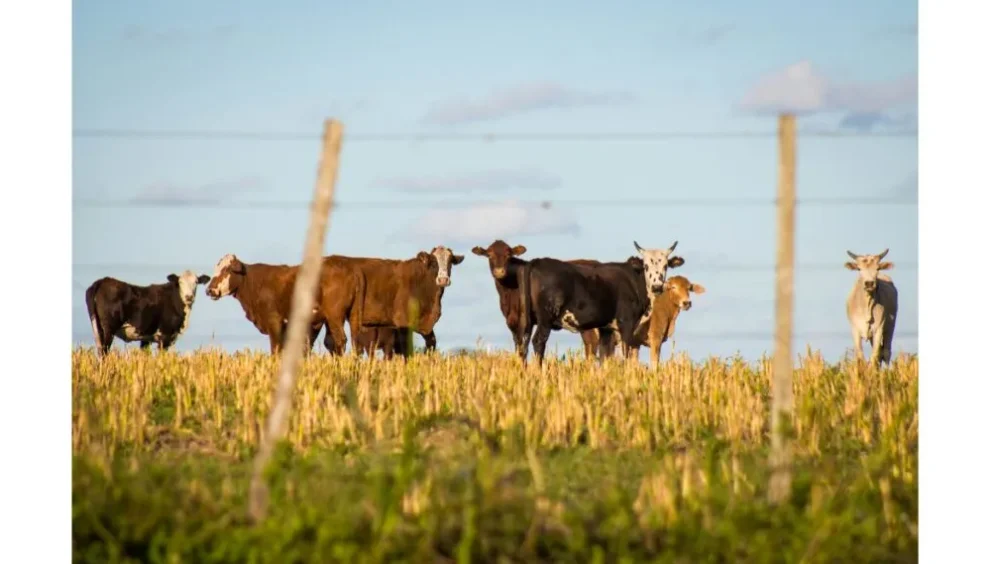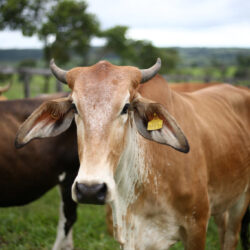In the heart of Kenya, a significant initiative is underway, one that promises to transform the agricultural landscape and elevate the country’s livestock industry to international standards. However, this ambitious mass livestock vaccination campaign, championed by President William Ruto, is encountering unexpected resistance from some quarters of the farming community.
On Tuesday, President Ruto addressed the nation, reaffirming his commitment to the Ministry of Agriculture’s vaccination program. According to the Ministry, this initiative aims to curb the spread of several debilitating livestock diseases and ensure that Kenyan livestock meets the stringent requirements of global markets. Despite the said benefits, the program has sparked controversy and scepticism among certain herders and farmers.
Critics of the vaccination drive have raised doubts about the efficacy of the vaccines. Some livestock farmers believe that the inoculations might harm their animals. Patrick Torome, a livestock farmer from the Rift Valley region, voiced his concerns vehemently. “I will not vaccinate my animals because maybe I will be compromising the quality of my cows,” he declared. “We don’t know whether someone is trying to introduce a virus to the animals. So, the rich will be able to afford the cure but the poor maybe will not be able, so people will introduce poverty in Africa.”
These sentiments have gained traction, fuelled by a lack of clear communication from the authorities. President Ruto, speaking at a goat auction in Baringo County, did not mince words in his response to the critics. “I want to promise the people of Kenya that we are going to carry out this vaccination because our farmers deserve improved earnings,” he asserted. “I want to ask leaders who do not know, who have no understanding, who have no plan, to spare us their ignorance.”
The Ministry of Agriculture and Livestock Development has set an ambitious target: vaccinating 22 million cattle and 50 million sheep and goats. The ministry has repeatedly assured livestock owners that the vaccines are safe and locally produced, aiming to dispel any lingering doubts. However, the uptake has been sluggish, with only 10% of the animals vaccinated so far. The ministry emphasizes that a vaccination rate of 85% is crucial to make Kenyan livestock products eligible for export.
President Ruto highlighted the broader implications of the vaccination drive, stressing that those opposing it are inadvertently hindering Kenya’s access to lucrative international markets. “Vaccination is about disease control. … You cannot use disinformation and fake news to deny the people of Kenya international markets by discouraging disease control in Kenya,” he stated emphatically.
The diseases targeted by the vaccination campaign are Anthrax, foot and mouth disease, Rift Valley fever, African swine fever, and rinderpest are among the ailments that have plagued Kenyan livestock, causing significant economic losses. According to the World Health Organization, vaccination is a proven method to prevent and control the spread of these diseases, safeguarding both animal and human health.
Despite the clear scientific consensus, the government’s efforts have been hampered by a failure to effectively communicate the benefits of the vaccination program. Some farmers and experts have criticized the authorities for allowing politicians to take on the roles of experts and veterinarians, thereby muddying the message and fuelling scepticism.
As the vaccination campaign continues, the Kenyan government faces the dual challenge of ramping up the inoculation rate and combating the misinformation that threatens to undermine this critical public health initiative. The stakes are high, not just for the health of the livestock but for the economic well-being of the farmers and the nation’s standing in the global agricultural market.
In the coming months, the success of this vaccination drive will hinge on the government’s ability to win the trust of the farming community and ensure that the benefits of disease control are clearly understood and embraced by all. For now, the battle for Kenya’s livestock health continues, with President Ruto leading the charge against both disease and disinformation.




